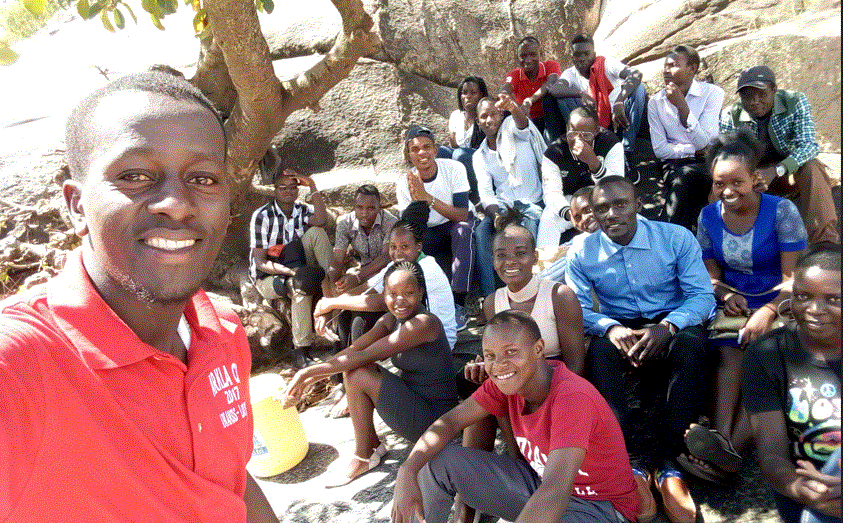What is humanism?
Humanism is a philosophical system that gives preference to human dignity combined with reason and agency. The philosophy places intellectual evidence alongside critical thinking ahead of dogmas while recognizing the human ability to produce ethical principles and meaningful ideas. Autonomy and compassion form the foundation of this philosophy, which gives trust to human agency to build progress through free individual pursuit while promoting collective accountability without dependence on supernatural powers.
Humanism exists as both a philosophical outlook and an ethical worldview because it focuses on ethics and intellectual activities around human beings while reinforcing their ability to reason and exercise agency while retaining dignity. The movement does not support supernatural reasoning because it views critical inquiry as the means humans use to create meaning alongside progress. The article explores humanist evolution through time as it studies its philosophical elements and ethical standards, its effects on science and education, and its current applications with practical illustrations of how it both helps and faces challenges.
Historical Development of Humanism
The historical foundation of Humanism grew from classical antiquity, during which Socrates and other Greek philosophers developed rational self-examination. Through his questioning process, he established one of the first principles that awarded intellectual reasoning precedence above established traditions. This concept began to sprout during the cultural renaissance of the 14th to 17th centuries. The movement of Renaissance humanism arrived through a Greek and Roman text, renaissance, which emphasized the study of education and art alongside human accomplishments. The scholar Francesco Petrarch earned his title “father of humanism,” during which he promoted “studia humanitatis” (the humanist study) to focus on literature along with history and ethical exploration (Burckhardt, 1860/2010). His written words showed a strong dedication to human personality as he moved beyond medieval theological priorities.
Humanism transformed into a new rational and scientific epoch during the Enlightenment period (17th to 19th centuries). Immanuel Kant wrote his essay,” What is Enlightenment?” to share the motto “Sapere aude” (“Dare to know”) (Kant, 1784/1991). According to Kant, the ability of people to discover moral principles changes their power over themselves, from following outside decrees to establishing their laws. The intellectual path of classical inquiry, Renaissance humanism, and Enlightenment rationalism created a legacy of free thinking that defines contemporary thought patterns.
Philosophical Foundations of Humanism
Humanism has philosophical origins that merge secular humanist principles with religious metaphysics and existential theories. Modern society primarily follows secular Humanism since it declares that humans create their ethics and life meaning through individual experiences independently of spiritual powers. The Humanist Manifesto I from 1933 sets forth the beliefs of ethical reasoning over supernatural powers (American Humanist Association, 1933). The American Humanist Association promotes the foundation of humanist principles through science and feelings of compassion in the world today.
Religious humanists combine values of human potential with elements of spiritual traditions in their belief system. Christian humanist Desiderius Erasmus presented a model where piety met human significance by praising the divine imprint on human reason and dignity (Trinkaus, 1970). Erasmus exactly achieves theological acceptance of blind piety through his work Praise of Folly by embracing the potential attributes of human beings.
The existential humanism theory proposed by Jean-Paul Sartre concentrates on freedom as the central concept for individuals. Sartre states that Existentialism is Humanism in that humans create their essence by choosing from a broad spectrum of available options (Sartre, 1946/2007). The empowerment of individuals comes hand in hand with their responsibility for themselves, which represents a core component of existential thought. The multiple dimensions of Humanism demonstrate its adaptability by accepting different interpretations of the human meaning in life.
Humanism and Ethics
The ethical discipline of Humanism affects moral philosophy alongside human rights and the principles of democratic systems. Moral philosophy under humanist principles supports ethical systems that link to human compassion instead of following godly commands. John Stuart Mill uses utilitarianism to support choices that produce maximum happiness when spread across a population (Mill, 1863/2001). The ethical principle focuses on achieving beneficial outcomes for humanity, demonstrating humanist practicality.
The essence of humanist ethics represents human rights that emerged during the Enlightenment to appear as a worldwide standard in the Universal Declaration of Human Rights (1948). This document enshrines dignity, equality, and liberty as universal principles, echoing humanist ideals (United Nations, 1948). The historical figures, including Voltaire, dedicated their efforts to combat censorship and oppression, which helped establish these rights.
Humanism has delivered significant benefits to the system of democracy. Modern constitutionalism integrates the Athenian model of civic participation through rational governance because of humanist beliefs in citizen judgment. Modern democratic institutions retain this legacy by giving people the power to influence the development of their communities. When put into practice, the ethical optimism approach within Humanism demonstrates challenges.
Real-Life Scenario: Humanism in European Society
Such a phenomenon becomes visible in the 2015 European migrant crisis. Germany showed humanistic empathy and respect through Merkel’s welcoming policy, which brought one million refugees to the country (Greenhill, 2016). Some analysts condemned this uncontrolled idealism because they believed it caused an excessive burden on societal structures and infrastructure systems. Pragmatic and economic criticisms of Humanism find validation through their ability to show the difference between fundamental values and different regional circumstances.
Humanism in Science and Education
Rational science is a primary focus for Humanism because humanists let evidence-based reason lead them toward discoveries. Through the Scientific Revolution, Galileo and other pioneers chose empirical methods instead of dogma, which provided another victory for Humanism. The heritage of Humanism stands as the foundation for modern progress in medical technology alongside climate research since it provides testable evidence against superstitious beliefs.
Humanism teaches education to emphasize student self-growth and analytical thinking methods. John Dewey presented his progressive educational system in 1938/1997 when he recommended practical classroom activities to replace traditional memorization methods (Dewey, 1938/1997). Through his educational method, he develops students’ curiosity and adaptability to face a challenging world. Humanist education defends total access to knowledge as a fundamental human right while carrying out worldwide literacy efforts, illustrating this principle.
Criticisms of Humanism
Humanism’s strengths invite scrutiny. According to Michel Foucault and other postmodern thinkers, his universalist project shows how it obscures power distribution disparities and cultural dominance (Foucault 1975/1995). Foucault viewed Humanism as a means of control since it utilized equality discourse to conceal privileged positions from a provocative perspective.
The religious establishment believes humanist humanity-centric orientation weakens divine law while creating a danger of moral flexibility. Religious scholars who maintain traditional theological views disagree that ethics loses meaning when no eternal foundation exists. Lynn White Jr., among ecologists, blames Humanism’s anthropocentric tendencies for environmental decline after claiming that human priorities exceed natural preservation (White, 1967). The European migrant crisis demonstrates potential weaknesses in Humanism because although the policy shows compassion, it exceeds human resource capacity.
Contemporary Relevance of Humanism
Humanism provides important perspectives on handling present-day complications. The social justice movement Black Lives Matter exists because Humanism advances protests that establish inherent value as a way to fight against institutional discrimination. The implementation of ethical artificial intelligence design intersects with Humanism at this time. The xAI purpose of speeding up human understanding represents humanist, spiritual goals but creates issues regarding independence and leadership management (Musk, 2023).
Humanism operates internationally to tackle issues such as political extremism and inequality. Humanists use dialogue to fight divisive statements, and their commitment to human rights tackles financial inequality in societies. The current era of polarization benefits from humanist principles because they establish common values among different groups.
Real-Life Scenario: Humanism in African Society
Rural villages in Kenya participate in the 2020 Universal Basic Income (UBI) trial that exemplifies how Humanism enhances the quality of life. Through unconditionally granted cash distributions, the program removed thousands of Kenyans from poverty while simultaneously granting them personal empowerment and respect (GiveDirectly, 2020). This program refutes criticism of Humanism because it delivers quantifiable societal improvements, thus establishing flexibility for current needs.
Conclusion: An Awakening Reflection
The journey of Humanism throughout history, starting from Socrates and moving through Kant as well as from Renaissance art toward Artificial Intelligence ethics, creates an advancing power for human development. Humanism produced rights, science, and democracy while facing vulnerabilities that postmodernist religious and ecological critics make manifest. The European migrant crisis demonstrates usability barriers of humanistic principles, whereas the Kenyan UBI program proves their constructive impact. Humanism faces challenges regarding extremism and inequality alongside the new technological realities that demand our answer to two crucial questions about using our capabilities without pride. From restoring dignity to our environment, do we possess the capacity to combine both goals? Humanism provides us with an enduring gift through its mirrors, which demand that we confront ourselves in various ways.
References
- American Humanist Association. (1933). Humanist Manifesto I. https://americanhumanist.org/what-is-humanism/manifesto1/
- Burckhardt, J. (2010). The civilization of the Renaissance in Italy. (S. G. C. Middlemore, Trans.). Dover Publications. (Original work published 1860)
- Dewey, J. (1997). Experience and education. Simon & Schuster. (Original work published 1938)
- Foucault, M. (1995). Discipline and punish: The birth of the prison. (A. Sheridan, Trans.). Vintage Books. (Original work published 1975)
- GiveDirectly. (2020). Universal basic income in Kenya: Impact report. https://www.givedirectly.org/ubi-study/
- Greenhill, K. M. (2016). Open arms behind barred doors: Fear, hypocrisy, and policy schizophrenia in the European migration crisis. European Law Journal, 22(3), 317-332. https://doi.org/10.1111/eulj.12179
- Kant, I. (1991). An answer to the question: What is Enlightenment? In H. Reiss (Ed.), Kant: Political writings (pp. 54-60). Cambridge University Press. (Original work published 1784)
- Mill, J. S. (2001). Utilitarianism. (G. Sher, Ed.). Hackett Publishing. (Original work published 1863)
- Sartre, J.-P. (2007). Existentialism is a humanism. (C. Macomber, Trans.). Yale University Press. (Original work published 1946)
- Trinkaus, C. (1970). In our image and likeness: Humanity and divinity in Italian humanist thought. University of Chicago Press.
- United Nations. (1948). Universal Declaration of Human Rights. https://www.un.org/en/universal-declaration-human-rights/
- White, L., Jr. (1967). The historical roots of our ecologic crisis. Science, 155(3767), 1203-1207. https://doi.org/10.1126/science.155.3767.1203




